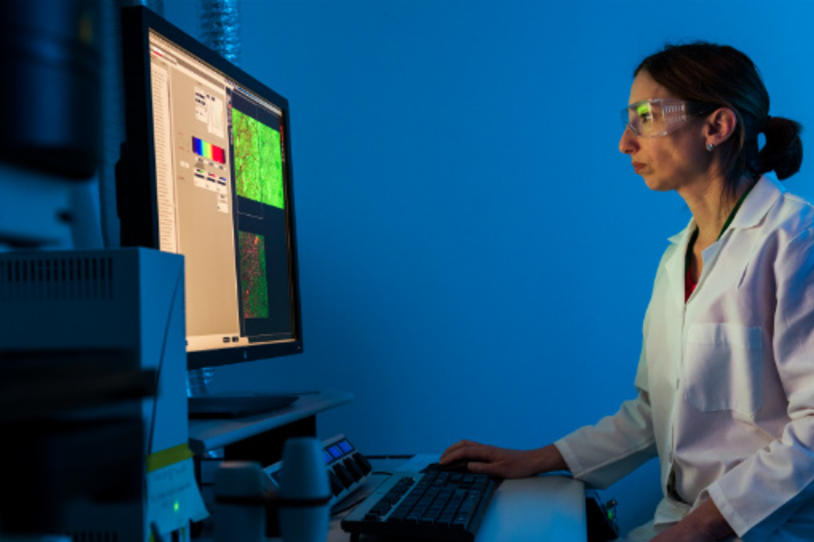
In late 2020, The Michael J. Fox Foundation’s Parkinson’s Progression Markers Initiative (PPMI) began enrolling more volunteers into this landmark study. By gathering data from people with and without Parkinson’s over time, PPMI is changing what we know about the disease and how research is done. With a goal to enroll 3,000 new participants — growing to more than 4,000 active volunteers — PPMI is poised for a bigger impact in transforming how doctors diagnose, manage and treat Parkinson’s disease (PD).
PPMI is recruiting people diagnosed with PD in the past two years who are not yet taking PD medication and control volunteers at 26 clinical sites in the United States, Greece, Israel, Spain and the United Kingdom. Over the coming months 23 more sites in these and seven other countries will begin enrolling participants. Thus far, as many sites are just beginning recruitment, six new volunteers have joined the study. See which sites are recruiting now.
While focused on stopping Parkinson’s, PPMI hopes half its study volunteers will not have PD themselves. People with certain Parkinson’s risk factors — family history, genetic connections, some clinical symptoms — are critical to developing strategies toward preventive therapies. Take a short survey to get started at michaeljfox.org/ppmisurvey.
This expansion of PPMI builds on the already robust PD dataset and biosample library generated over the last 10 years. PPMI data has been downloaded more than 6.9 million times, and researchers are leveraging that information toward findings that could speed treatment breakthroughs. Here we highlight some recently published results from PPMI data analysis.
Brain Scan May Predict Parkinson’s after Sleep Disorder
A dopamine activity scan may help predict Parkinson’s in a high-risk group with REM sleep behavior disorder or RBD (physically acting out dreams while asleep). Led by Lana Chahine, MD, at the University of Pittsburgh, PPMI investigators reviewed dopamine transporter (DaT) brain imaging scans. DaTscans measure dopamine, a chemical that coordinates movement and is lost in PD.
In a paper published in Annals of Clinical and Translational Neurology, they report that among 38 people enrolled in PPMI with RBD but not Parkinson’s, about a third (36 percent) developed movement symptoms of PD over time in the study. Those individuals had more dopamine loss on their DaTscans when they joined PPMI. This imaging scan might help predict who may develop Parkinson’s after RBD, which could help select participants for prevention trials.
Anxiety and Apathy Linked to Motor Complications
Another predictor of Parkinson’s course may be certain non-motor symptoms. In a paper published in Movement Disorders, Jared T. Hinkle at Johns Hopkins University School of Medicine, and team show that PPMI participants with PD who showed apathy and anxiety early in their disease (common symptoms) were more likely to experience motor complications with dopamine-replacement therapy. Dopamine-replacement therapy (e.g., levodopa/Sinemet) is a standard treatment for PD but can come with side effects of “off” episodes and dyskinesia (abnormal movements).
Scientists are not sure why anxiety and apathy are related to motor complications, but it may have something to do with the relationship between dopamine and another brain chemical involved in these symptoms: serotonin. More research into this connection could help better understand biology and point to new treatments. And this information could help people with Parkinson’s and their doctors discuss different treatment options.
Genetics Point to Deeper Understanding of Disease Risk and Progression
Genetics also offers clues to how Parkinson’s may begin and progress. Recently scientists have used PPMI data to uncover connections to cognitive changes and age of onset.
A team led by Huw Morris, PhD, at University College London published in Movement Disorders that a variant of the APOE gene (prominent in Alzheimer’s disease) was associated with overall disease progression and especially changes in thinking and memory. Therapies targeting the APOE pathway are in development for Alzheimer’s, and more research could point to their potential use for PD.
And Ryan Anderton, PhD, and others at the Perron Institute for Neurological and Translational Science in Australia shared in Frontiers in Aging Neuroscience that a variant in an anti-inflammatory gene that protects the gut, PGLYRP4, increased Parkinson’s risk and impacted age of onset. (Learn more about the gut-brain connection in PD.)
A better understanding of genetic connections to disease could point to new therapeutic approaches and help design clinical trials by identifying the right participants to enroll.
As PPMI data continues to contribute to findings like these, the study is scaling to welcome more volunteers. Later this year, PPMI will launch an online platform to track Parkinson’s symptoms and identify risk factors. Stay tuned for much more on PPMI in the coming months, and visit michaeljfox.org/ppmi for the latest information.
